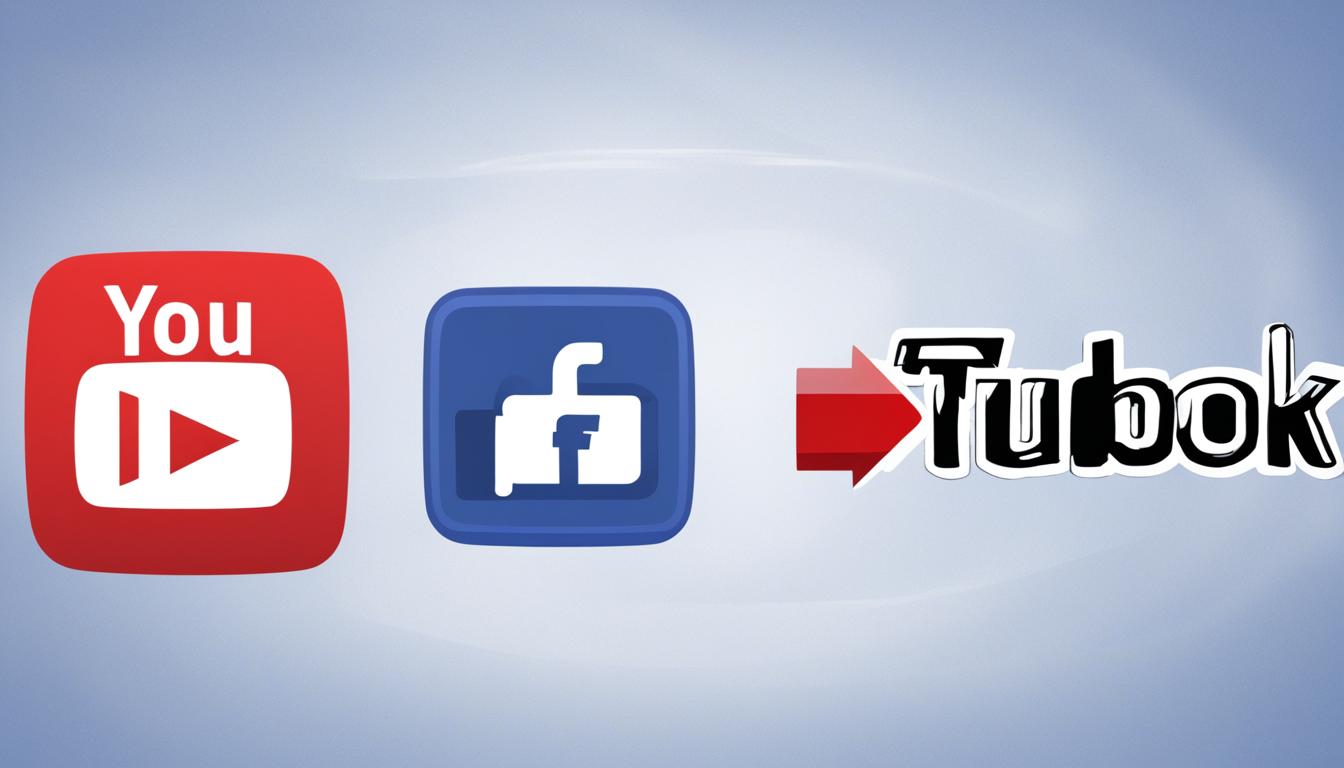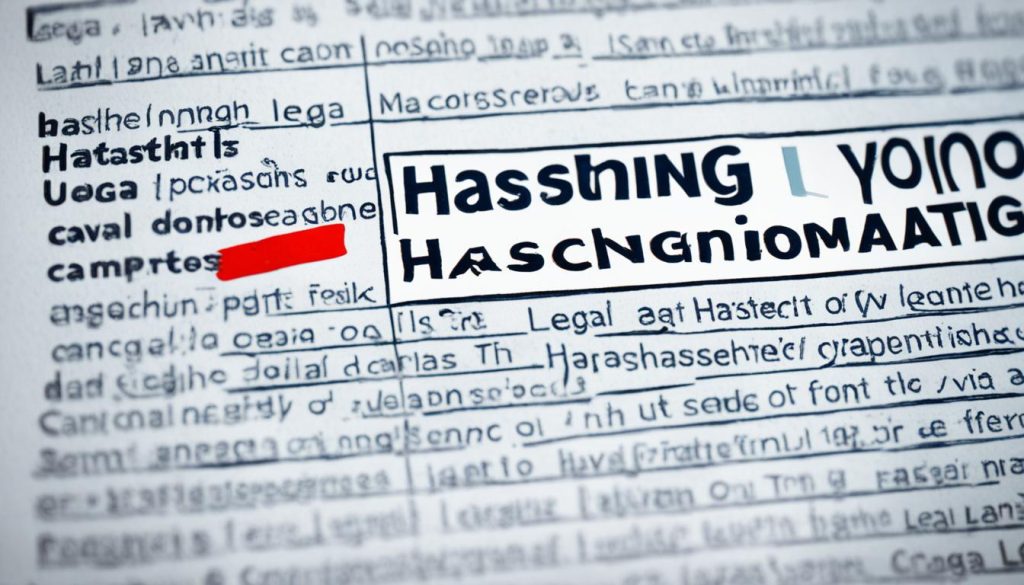
Are you looking to share your Facebook videos with a wider audience? Or maybe you want to keep your favorite videos offline for convenience? Whatever your reason, I’m here to guide you on how to download and reupload Facebook videos to YouTube. With just a few simple steps, you’ll be able to migrate your videos from Facebook to YouTube and reach a whole new audience.
Facebook live videos offer a diverse range of content, but unfortunately, the platform doesn’t provide a native feature to download them. However, there are ways to overcome this challenge and get your videos onto YouTube. Whether you’re uploading your own videos or downloading someone else’s, I’ll show you how to do it easily and conveniently.
Key Takeaways:
- Learn how to upload video from Facebook to YouTube
- Discover the step-by-step guide for sharing videos from Facebook to YouTube
- Find out how to transfer videos from Facebook to YouTube
- Learn how to convert Facebook videos to YouTube format
- Understand the process to migrate videos from Facebook to YouTube
Is it legal to download social media video?
The legality of downloading videos from social media platforms depends on the terms of service of the platform and any consent forms that have been signed. While some platforms allow users to download videos for personal use, others may have restrictions on editing or distributing the content.
Obtaining the copyright holder’s consent is crucial before downloading a video, and it’s important to be aware of any additional permissions or restrictions that may apply. Copyright law generally grants ownership of a work to the creator, but when content is uploaded to social media platforms, the platforms may have a license to use and distribute that content.
Therefore, it is crucial to read and understand the terms of service for each platform before downloading any video to ensure compliance with the platform’s rules and regulations.
“It is important to obtain the copyright holder’s consent before downloading a video and to be aware of any additional permissions or restrictions that may apply.”
– Legal Expert
- Before downloading any social media video, make sure to read and understand the terms of service of the platform.
- Some platforms may allow personal use downloading, while others may have restrictions.
- Always seek consent from the copyright holder before downloading and respect any additional permissions or restrictions.
By being mindful of the platform’s terms of service and obtaining the necessary permissions, you can ensure that you are downloading social media videos in a legal and ethical manner, thereby avoiding any potential copyright infringement.
Who owns the copyright on social media video content?
The ownership of copyright for social media video content primarily rests with the creators of the original content. When individuals produce videos, they automatically hold the copyright to their work. This grants them exclusive rights to reproduce, distribute, and publicly display their videos.
However, when creators upload their videos to social media platforms, the terms of service agreements may include provisions that grant the platforms certain rights and licenses. These licenses allow the platforms to use, distribute, and modify the content within the confines of their terms of service.
As a result, social media platforms may have the right to republish or format the videos uploaded to their platforms. It is essential to review the terms of service for each platform to understand the extent of the platform’s rights and the copyright ownership of social media videos.
If you plan to use user-generated video content for marketing purposes, it is crucial to obtain proper consent and permissions from the creators. This can be achieved through content assignment agreements or consent forms that explicitly grant the necessary rights for using and distributing the videos.
Understanding the Terms of Service for Social Media Videos
When it comes to copyright ownership of social media videos, it is essential to familiarize yourself with the terms of service for each platform. These terms outline the agreement between the users and the platform, including the rights and permissions granted to both the users and the platform.
“Reviewing the terms of service is crucial to understand the copyright implications and ownership rights of social media videos.”
By reading and understanding the terms of service, you can determine who claims ownership of the videos uploaded to social media platforms. Additionally, the terms of service may specify any conditions or limitations on the use and distribution of the content.
Consent Forms and Content Assignment for Social Media Videos
When brands or individuals intend to use user-generated video content from social media platforms, it is important to obtain proper consent forms and assign content rights. Consent forms serve as legal documents that grant permission for the use and distribution of the videos.
Content assignment agreements, on the other hand, transfer the copyright ownership from the original creators to the brands or individuals who intend to use the content. These agreements provide a formal and documented transfer of rights, ensuring that the brand or individual owns the copyright to the user-generated video content they plan to use.
By adhering to consent forms and content assignment procedures, brands and individuals can confidently use social media videos while respecting copyright ownership and avoiding any potential legal issues.
How do brands ensure they own user-generated video content?
To ensure ownership of user-generated video content, brands should take the necessary steps to obtain explicit consent from the creators. This can be done through the use of consent forms or content assignment documents that clearly state the rights granted to the brand regarding the use and distribution of the video content.
By obtaining consent forms, brands can establish their ownership of the user-generated videos and protect themselves from any potential legal disputes. These consent forms serve as evidence that the content creators have willingly authorized the brand to use their videos.
Furthermore, it is crucial for brands to adhere to their brand guidelines when using user-generated video content. This includes ensuring proper formatting, such as adding the brand’s logo or watermark, and complying with any specific guidelines outlined by the brand.
Brand guidelines for user-generated video content may also include instructions for proper attribution, captioning, and compliance with legal requirements, such as copyright regulations.
It is important for brands to respect the rights of content creators and provide proper credit for their work, even if it is user-generated. By doing so, brands can foster positive relationships with their users and maintain a strong reputation for ethical practices.
By following these steps, brands can minimize any ambiguity regarding the ownership of user-generated video content and ensure they have the necessary rights to use and distribute the content. This not only helps protect their brand image and reputation but also mitigates the risk of copyright infringement or other legal issues.

Key Points:
- Obtain explicit consent from content creators through consent forms or content assignment documents.
- Adhere to brand guidelines for user-generated video content, including proper formatting, attribution, and captioning.
- Respect the rights of content creators and provide appropriate credit for their work.
What are the copyright implications for hashtag campaigns?
When brands run hashtag campaigns on popular social media platforms like Instagram, it is crucial to be aware of the copyright implications associated with user-generated content. Participants in these campaigns may submit photos or videos that contain the brand’s hashtag, indicating their willingness to participate and potentially allowing their content to be used by the brand.
However, it is essential to understand that the brand can only use the content according to the rights assigned by the participants. Simply because someone includes a brand’s hashtag does not automatically grant the brand unrestricted access to their content. The brand must obtain explicit permission from the participants, ensuring that all necessary consent forms are signed.
Furthermore, brands must always adhere to proper formatting and attribution guidelines when using user-generated content. This is essential to comply with copyright laws and respect the ownership rights of the content creators. By properly formatting and giving credit to the participants, brands can mitigate the risk of copyright infringement and potential legal issues.
An example of appropriate formatting and attribution would be including the participant’s username or handle and the caption associated with the original post. By doing so, the brand acknowledges the contribution of the participant and provides proper credit for the content used in the hashtag campaign.

It is important for brands to remember that failure to obtain the necessary permissions, format content correctly, or attribute the original creators properly can have serious consequences. Copyright infringement can occur if brands use user-generated content without explicit consent or fail to give appropriate credit. This can lead to legal issues and damage the brand’s reputation.
Key takeaways:
- Obtain explicit permission from participants in hashtag campaigns to use their content.
- Ensure all necessary consent forms are signed to protect the brand from potential legal issues.
- Format and attribute user-generated content correctly to comply with copyright laws.
- Failure to obtain permissions and comply with copyright laws can result in copyright infringement and damage the brand’s reputation.
Conclusion
Downloading and reuploading Facebook videos to YouTube can be a seamless process as long as you adhere to the proper steps and obtain the necessary permissions. It is vital to understand and respect the terms of service of social media platforms, as well as the rights of content creators.
By following these guidelines, both brands and individuals can effectively navigate copyright law and ensure that they are using social media videos in a legal and ethical manner. Obtaining explicit consent from creators and properly attributing their work not only safeguards ownership but also promotes a fair and respectful online environment.
Remember, when sharing or using social media videos, it is essential to obtain the appropriate permissions and conform to copyright laws. By doing so, you can confidently utilize and share captivating content while upholding the rights of the original creators.






